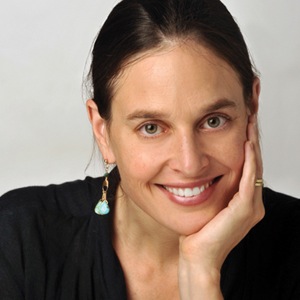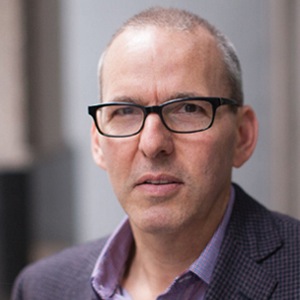More than 100 people were at the Museum of Vancouver on Sept. 9 for a New Israel Fund of Canada-hosted panel discussion, The Backstory: Behind What You Know About Israel. Moderated by Temple Sholom’s Rabbi Dan Moskovitz, the evening featured Ronit Heyd, executive director of Shatil, an Israeli nonprofit supported by NIF, and Canadian journalist and editor Jonathan Kay of The Walrus.
The night before their Vancouver talk, Kay and Heyd spoke to a large crowd in Toronto, where they were joined by Haaretz editor-in-chief and journalist Aluf Benn. In Vancouver, the two were introduced by NIFC board president Joan Garson and executive director Orit Sarfaty. They covered a range of issues, including the rise of women in the Knesset, how North Americans talk about Israel, the problem of racism in Israeli society, the lasting impacts of 2011’s social justice protests and the influence of feminism and the Women of the Wall.

Starting with a bit of good news, Moskovitz asked Heyd to talk about the fact that, at 31 members, the current Israeli Knesset has more women MKs than any prior government. “It’s not just in the Knesset,” said Heyd, “more women than ever ran in the last municipal elections.” Women are also trying to participate more equally in local religious councils, a task not for the faint-hearted, she said, due to the “very strong political power in the Knesset [and the Israeli establishment] that is still being held by the ultra-Orthodox parties. The ultra-Orthodox do not have – I want to add, yet – do not have women in the parties.”
The impact of the rise of women in politics extends beyond the makeup of parliament, Heyd said. “It is important to note that when a woman enters a very masculine environment, it changes” in several ways, including shifting the agenda. It is changed by raising, for example, the notion of transparency, “of the need to have a more just distribution of resources, of having a more open governance … and we see that especially with the religious councils.”
Though the pace of change is slow, she said, “This is not happening just out of the blue; they needed training. One of the things that Shatil does is work with a group of women who want to be elected to the religious councils – they want to have their voice heard. They need support, they need to know how to build alliances, how to read a budget.”
Kay added that, while there are certain parallels, the situation in Canada is very different, and bringing women into Israeli politics is a “much more urgent project.” Unlike in Israel, he said, “in Canada, there is no significant mainstream constituency that believes that women cannot occupy the public sphere. It’s a fringe, not mainstream, view. In Israel, you have these people who ideologically don’t believe that women should have a role in public life.”
However, though women in Israel are participating at unprecedented levels in government, their voices are still not equally heard in the male-dominated policy landscape. Of the main issues in the Knesset, Heyd said, “The first one is security. The second one is security. The third one is also security. And women are not brought into that conversation.” The impact of women will be more fully realized, she said, once they have influence in policies around pay equality, security and the economy.
Moskovitz asked each panelist to comment on the polarization of the conversation about Israel and how the divisiveness impacts the Canadian and Israeli Jewish communities.

Part of what creates the tense atmosphere is that “Zionism itself in its most potent form has become a form of religion,” Kay said. “What do religions provide? They provide a theory of evil, they provide a theory of good, they provide a tribal identity, they provide a liturgy … many of the fundamental elements of a religion are provided by the most militant aspects of Zionism as they are projected in the Diaspora.
“By the way,” he continued, “I consider myself a Zionist. I’ve written columns in support of Israel, I’ve raised the flag in time of war. However, I know when I see people’s opinions on geopolitics become so strong that they take on the character of religious beliefs. And you see this with the Iran nuclear deal. It is not only, ‘I don’t like Clause 7, but I do like Clause 8.’ The dialogue is, ‘It’s 1938, are you with Churchill or are you with Chamberlain?’ … the imagery of Hitler, the imagery of black, white, good, evil. And, again, I know there’s this well-intentioned idea among many liberal Jews, ‘Well, if only we had the right press release, or the right argument and we could frame things in the right way.’… To a certain extent, that’s not happening because the people on the other side of the debate have chosen another faith.”
The speakers agreed that the polarization of the debate in the Diaspora impacts Israeli society; it matters. “There is a direct line that goes from the conversation that is being held here in North America and what’s happening in Israel,” said Heyd.
Can Jews in North America find a way to talk about Israel, asked Moskovitz?
“Email is the destruction of dialogue,” Kay said. “Stop sending each other articles! Take 30 seconds and actually put your own thoughts in your own words. You don’t have to send it to 50 people…. Don’t call me an imperialist if you think I’m right wing. Don’t call me a useful idiot if you think I’m left wing…. Don’t fall back on those tropes…. In the ’90s, you actually had to find someone to argue with! Now, you can actually do it from your desk, and I think that has raised the temperature because it has created tribalism. It’s one thing to lose an argument with one person, it’s another thing to lose an argument with 50 people on a reply-all email chain. It sounds silly, but the medium is the message.”
Another issue that has made news is the problem of racism. While there are few parallels between the Black Lives Matter movement in the United States and the protests of Ethiopian Israelis earlier this year, both countries still need to find a way to better integrate and respect racial diversity. The issue is especially acute when it comes to integrating Arab-Israelis into Israeli society.
Kay said he believes that Canada has done an excellent job of assimilating various groups, with some exceptions, but it helps that many immigrants come to Canada from urban centres, and are well educated. “Regardless of their skin color, they’re capitalists…. That’s the main thing,” he said.
On the question of what changes Israel has undergone since the 2011 summer economic protests, Heyd said there is still no economic relief for average Israelis, who are increasingly burdened by the cost of living, but Israelis have received more coverage for childcare, and the centralization of the market is back on the political agenda.
Overall, whether it’s the ways in which Israel is meeting its challenges or struggling to balance security with social justice, what is apparent, Heyd said, is that there is “a mini flourishing of civil society … people in the periphery are becoming involved, not just Tel Aviv, the big cities,” and that is cause of cautious optimism.
NIFC hosts Anat Hoffman, executive director of the Israel Religious Action Centre, on Nov. 17 at Temple Sholom.
Basya Laye is a former editor of the Jewish Independent.
